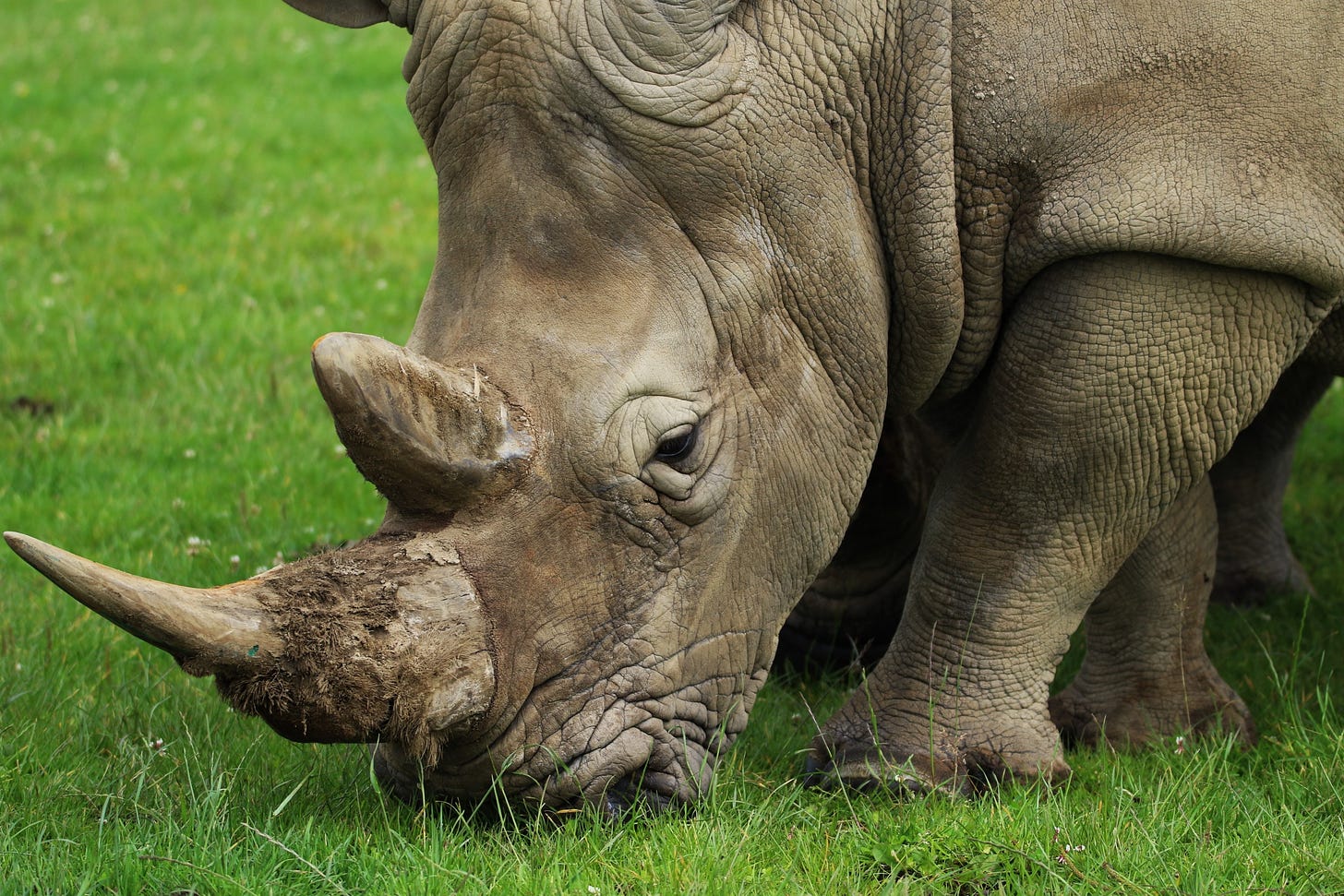Wildlife crime is seen as a soft touch by criminal gangs
New research shows that even serious environmental crimes can lead to relatively light sentences
Nearly a fifth of convicted rhino horn traffickers across 19 countries were jailed for less than four years, according to a report from the Wildlife Justice Commission (WJC).
Despite the crime contributing to the declining populations of rhinos across the world, gaps remain in enforcement, the report said. It assesses how well international organised crime frameworks have been incorporated into domestic law.
Wildlife trafficking is increasingly being considered alongside other serious organised crimes, but experts frequently argue that sentences are too lenient. The illegal trade in wild animals, alongside other factors like habitat loss and climate change, is a significant contributor to the ongoing species extinction crisis.
However, traffickers frequently get away with paltry jail terms or even fines when they are caught. This makes it an attractive low-risk, high-reward activity for criminal gangs.
It is now well-established that rhinos are seriously threatened and they garner a good deal of public attention. Crimes involving other animals may be even less harshly treated.
Nepal: Interpol has issued a red notice for a Nepali national believed to be behind the illegal poaching of a tiger and the trafficking of its bones to China. Dharke Lama, who also uses the name Turke Lama, has been on the run for 10 years but is accused of poaching in the Satpura Tiger Reserve. The warrant was requested by the Indian State Tiger Strike Force. (The Hitavada)
Brazil: Brazilian police are expanding a programme which enables them to track the origin of gold exports. Illegal mining for the precious metal is a major problem in the Amazon and officers hope that the widening of the scheme will enable them to better catch those who attempt to smuggle it across borders. “Gold DNA” was used for the first time for a successful prosecution in 2023. (Reuters)
US: Authorities from 21 countries partnered to intercept a shipment of 50,000 pounds of glass eels in what has been described as a “major blow” to a wildlife trafficking network. Also known as European eels, the species has declined by as much as 95 per cent since the 1980s and is one of the most trafficked animals in the world. They are prized as delicacies in many parts of the world but little is known about how to breed them. (Miami Herald)
Indonesia: Nearly 50 protected Nicobar pigeons were seized on the Indonesian island of Sulawesi bound for sale. Officers received reports of online posts advertising the birds for sale and acted to protect them. The suspect said they had acquired the birds as chicks and raised them to adulthood to sell. It is illegal to sell the species internationally. (Antara)
US: Environmental enforcement has fallen to record lows as the number of lawsuits brought by the Trump government fell to just 14. This was the lowest figure for any six month period in the past century. However, it is fair to point out that the Biden administration had set the previous low. (USA Today)
UK: A red kite found dead in Scotland was poisoned with a banned pesticide called rodenticide, which is used to kill rats, mice and squirrels. Legal rodenticides can be used with caution, but this type is illegal and its use in this case was described by police as “reckless”. (BBC)
Bahamas: A “full-out assault” is being carried out on the Bahamas’ fisheries by poachers and illegal vessels, the country’s fisheries agency claimed. The country must strengthen its maritime law enforcement capabilities in response to the threat, the organisation’s secretary said. A foreign fishing charter operating illegally in national waters was seized last week. (Tribune)
Croatia: A species of sea urchin is under serious threat of extinction because of overfishing, an expert said. Marin Kirinčić, of the Natural History Museum in Rijeka, said the species is in decline thanks to the amount of fishing in the area. Sea urchins can be sold for as much as 200 Euros per kilogram in some parts of the world and are fished for consumption. (Croatia Week)
Thank you so much for reading Wild Crime. This is a fully reader-supported publication with no outside funding. Paid subscriptions make it possible for us to dig deeper and pursue investigations that take time and resources. But even if you’re reading for free, you’re helping to keep this work alive, and I’m grateful for that.
If you’d like to support Wild Crime further, consider becoming a paid subscriber or sharing this newsletter with someone who might find it interesting. Every bit of support makes a real difference.


